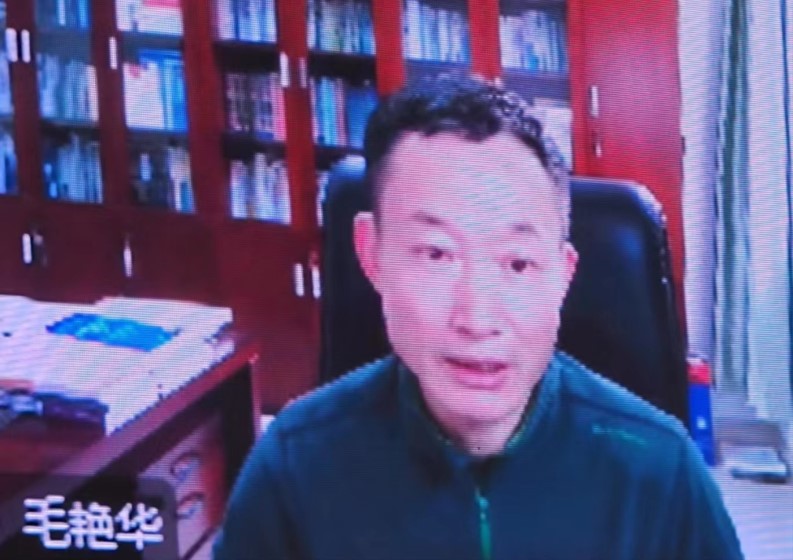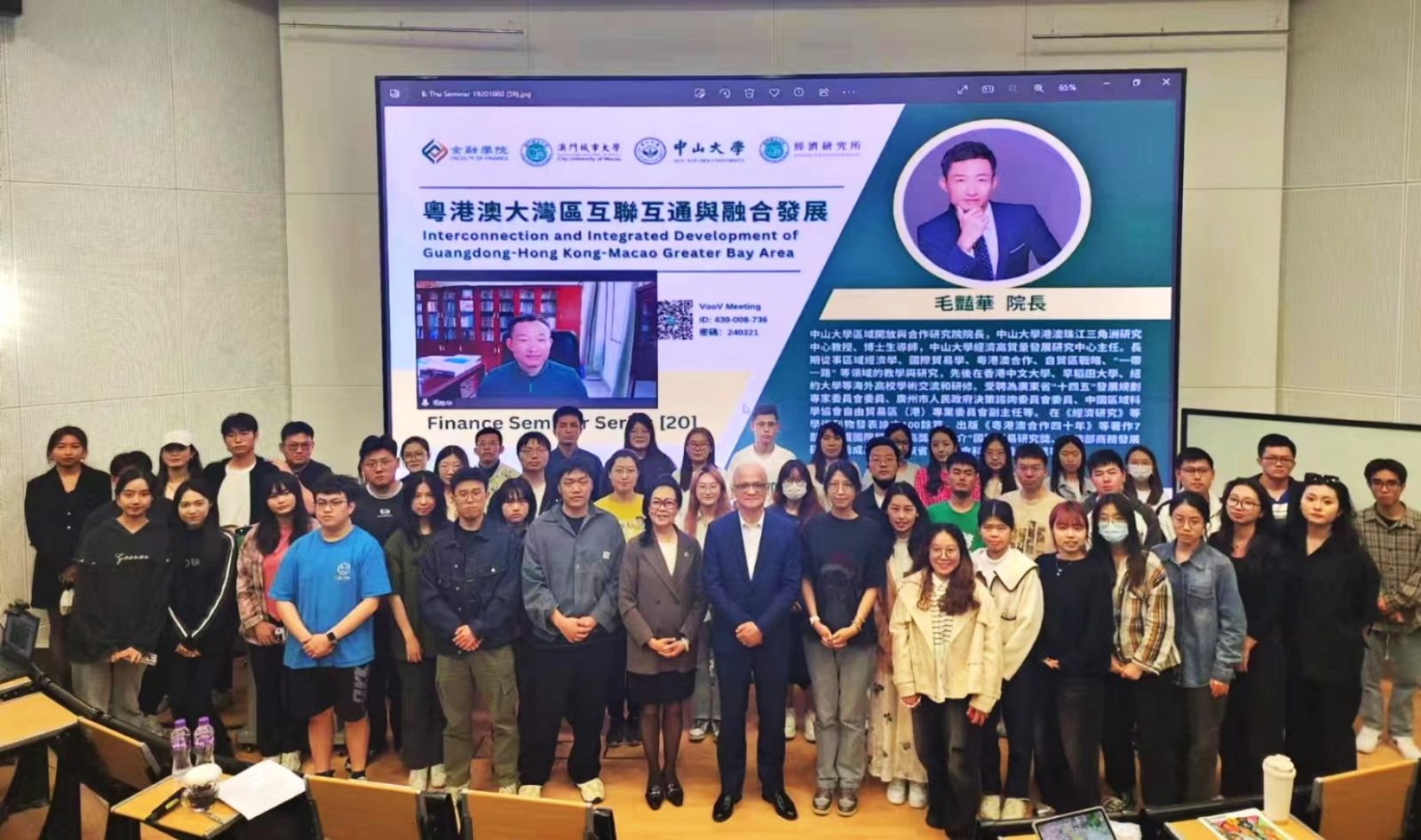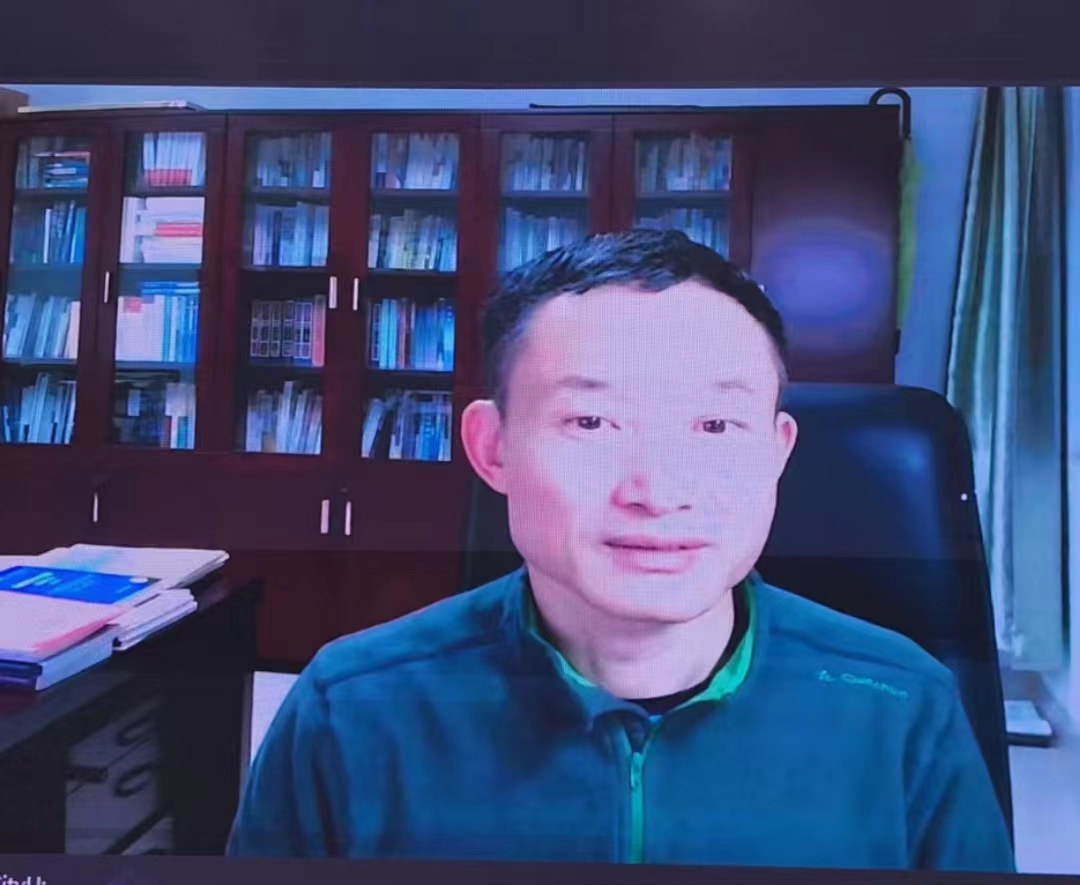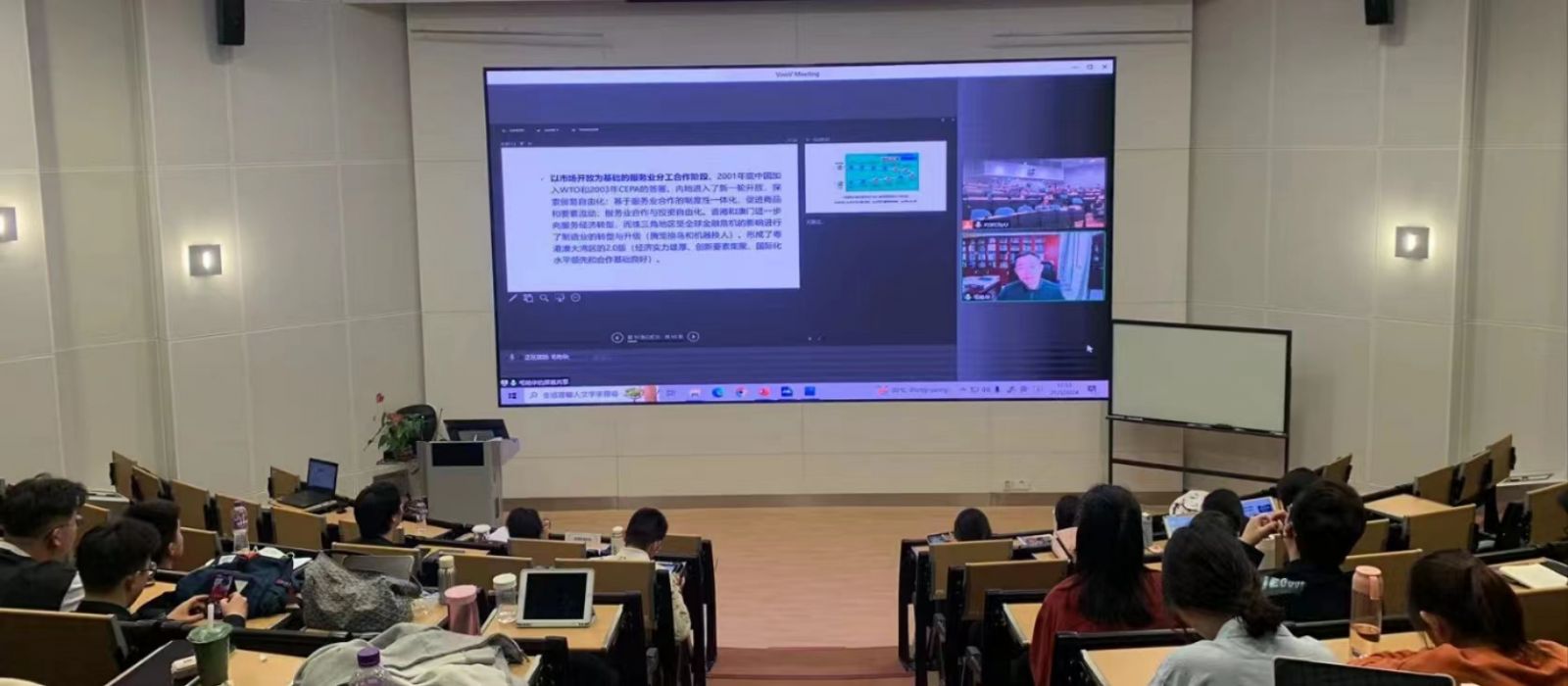
On March 21, 2024, the Financial Seminar Series [20] organized by the Faculty of Finance at the City University of Macau was held at the Ho Yin Convention Centre on Taipa Campus. The Seminar featured Dean Yanhua Mao of the Institute of Regional Opening and Cooperation at Sun Yat-sen University (SYSU-IROC) as the keynote speaker, who shared insights on the topic "Interconnection and Integrated Development of Guangdong-Hong Kong-Macao Greater Bay Area". Guests attending this seminar include Dean Adrian Cheung and Associate Dean Eva Khong of the Faculty of Finance, City University of Macau.
Professor Mao currently serves as the Dean of the Institute of Regional Opening and Cooperation at Sun Yat-sen University (SYSU-IROC), Professor and Doctoral Supervisor at the Center for Studies of Hong Kong, Macao and Pearl River Delta Key Research Institute of Humanities and Social Sciences in Universities, and the Director of the Center for High-Quality Economic Development Research at Sun Yat-sen University. He has long been engaged in teaching and research in the fields of regional economics, international trade, cooperation between Guangdong, Hong Kong, and Macao, free trade zone strategies, and the Belt and Road Initiative. He has conducted academic exchanges and research at overseas universities such as the Chinese University of Hong Kong, Waseda University, and New York University. He has been appointed as a member of the expert committee for Guangdong Province's 14th Five-Year Plan, a member of the decision-making advisory committee of the Guangzhou Municipal Government, and the Deputy Director of the Professional Committee on Free Trade Zones (Hong Kong) of the China Association of Regional Science. He has published over 100 academic papers in journals such as "Economic Research" and authored seven books, including the book about forty years of Guangdong-Hong Kong-Macao Cooperation. He has also been awarded the highest prize in international trade, the "An Zijie" International Trade Research Award.

Professor Mao's report provided a thorough analysis of the historical evolution of Guangdong-Hong Kong-Macao cooperation, the current status and theoretical foundation of the construction of the Greater Bay Area, the effectiveness of regional connectivity and integrated development, and proposed directions for deepening connectivity in the new phase of the Greater Bay Area. This seminar aimed to explore the future development of the Greater Bay Area and provide theoretical support and practical guidance for regional cooperation.
Professor Mao emphasized that the planning and construction of the Guangdong-Hong Kong-Macao Greater Bay Area is not only a new attempt to promote the formation of a new pattern of comprehensive opening-up in the new era, but also a new practice to promote the development of the "one country, two systems". Since the signing of the " Framework Agreement on Deepening Guangdong-Hong Kong-Macao Cooperation in the Development of the Bay Area" on July 1, 2017, staged achievements have been demonstrated. The signing of this agreement marked the official launch of the construction of the Guangdong-Hong Kong-Macao Greater Bay Area. According to the latest data, the total economic output of the Greater Bay Area has reached approximately 13 trillion yuan, an increase of approximately 2.8 trillion yuan compared to 2017. The permanent population reached approximately 86.39 million, representing an increase of approximately 16.38 million compared to 2017.

From an economic perspective, the cooperative development of the Guangdong-Hong Kong-Macao Greater Bay Area can be viewed as a process of regional economic integration. Through innovative institutional mechanisms, obstacles to the flow of goods and factors are eliminated, and the complementary advantages of various cities are promoted. In this process, institutional innovation, regional integration, and division of labor and cooperation become the three major logics driving the development of the Greater Bay Area.
In terms of institutional innovation, reform and opening-up have provided powerful impetus for the construction of the Greater Bay Area, reducing transaction costs, optimizing business environment, and attracting many domestic and foreign high-quality resources and innovative factors. At the same time, market openness and infrastructure construction have also promoted cross-border factor flows, providing strong support for the development of the Greater Bay Area. In terms of regional integration, Guangdong, Hong Kong, and Macao have continuously strengthened cooperation and promoted coordinated industrial development. In terms of division of labor and cooperation, Guangdong, Hong Kong, and Macao have fully leveraged their respective advantages to achieve deeper and more detailed industrial specialization. Hong Kong and Macao, as international financial, trade, and shipping centers, provide strong financial support and international channels for the Greater Bay Area. The Pearl River Delta region, relying on its manufacturing base and innovative capabilities, has become an important driver of economic growth in the Greater Bay Area.

Professor Mao further mentioned that the construction of the Guangdong-Hong Kong-Macao Greater Bay Area has received high-level attention and strong support from the nation. During President Xi Jinping’s inspection in Guangdong, he emphasized that the construction of the Greater Bay Area should be regarded as a major opportunity for Guangdong to deepen reform and opening-up, and should be highly prioritized. This important instruction has pointed out the direction for the construction of the Greater Bay Area and enhanced confidence in its future development.
Finally, the Faculty of Finance at the City University of Macau sincerely thanked Professor Yanhua Mao, Dean of the Institute of Regional Opening and Cooperation at Sun Yat-sen University, for his excellent presentation. Professor Mao's presentation provided valuable theoretical support and practical guidance for student of Faculty of Finance.


